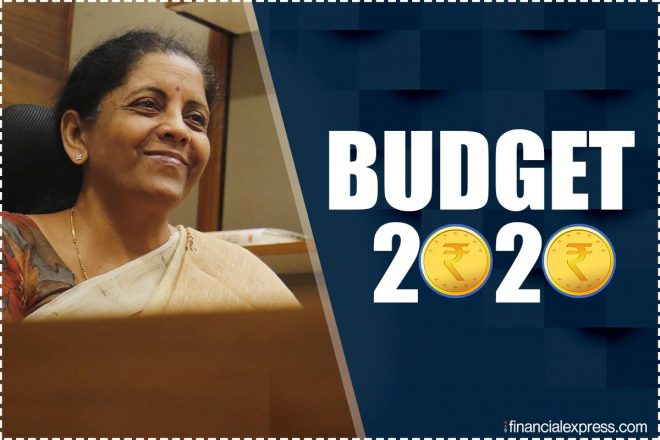Budget 2020-21: Finance Minister Nirmala Sitharaman will today get her ‘bahi-khata’ to the Parliament and make public India’s financial health and the measures she is willing to take to undo the downturn. If experts are to be believed FM’s speech could further boost the already beaming markets as she is expected to go all-gun-blazing for growth. However, that has not always been the case. The last two Union Budgets presented by Arun Jaitley and Nirmala Sitharaman failed to impress Sensex and Nifty in the weeks following the Budget announcement. However, prior to this, benchmark indices Sensex and Nifty have been rather cheerful post the Budget presentation.
Union Budget 2019-20
On July 5, 2020, when Nirmala Sitharaman presented the Parliament with NDA’s first budget in its second term the Sensex had opened at 39,990 and Nifty 50 was at 11964. As Sitharaman laid out her plan to make India a $5 trillion economy investors were not happy. Evidently S&P BSE Sensex closed at 39,513 and Nifty 50 at 11,811, both losing ground. In the week after the Budget Sensex closed at 38,736 and Nifty 50 shut at 11,552. A proposal that sought to increase minimum public shareholding in listed companies to 35 percent from 25 percent hit the market hard.
Union Budget 2018-19
In what was Arun Jaitley’s last Budget presentation Sensex lost 142 points on the day of the Budget while Nifty 50 slipped 28 points. A week later the indices were still unable to shrug off the impact as Sensex lost 2,043 points and Nifty 50 closed below the 11,000 mark. Apart from these two instances, Sensex and Nifty have been rather cheerful post-budget bringing in positive returns for investors.
Watch Video: What is Union Budget of India?
Union Budget 2017-18
On the day of 2017-18 Budget announcement, Sensex opened at 27,669 points and closed at 28,141. On the other hand, broader Nifty 50 index opened at 8,570 and closed at 8,716, jumping 146 points on the Budget day. The trend continued in the following week as well when Sensex jumped to 28,334 and Nifty touched 8,793 points.
ALSO READ | Budget 2020: Will the maximum marginal tax rate of 42.74% be lowered?
Union Budget 2016-17
2016-17 Budget was a bit of a curveball for the markets when the indices slumped on the Budget day but showed significant returns in the next week. Sensex had initially dropped from 23,238 to 23,002 at the end of the day but returned in the coming week and ended at 24,646 points. Similarly, Nifty 50 dropped 63 points and ended the Budget day at 6,987 points but was able to recover from the loss and end the next week at 7,485 points.
Union Budget 2015-16
The Narendra Modi government’s first full-year Budget was a bit of a volatile affair for stocks that rose 141 points on the Budget day. Nifty 50, on the other hand, dropped 12 points on the day closing at 8,901 points but recovered in the following week to close at 8,937 points.
ALSO READ | Budget 2020: Will govt notify any relief on long-term capital gains, dividend distribution tax? FE Survey
Interim Budget 2019
In the interim budget ahead of the 2019 general elections, Piyush Goyal presented the budget taking over the reins from Arun Jaitley for a brief period. With hopes of a populist budget ahead of the general elections to woo voters the market jumped from 36,311 to end the day at 36,469 points. The Nifty 50 index too went from 10,851 to 10,893 points on the budget day.
Hopes of a budget that will focus on growth have upped the ante on D-Street this time. While the economy is staring at its worst downturn in recent memory, benchmark indices have been performing quite the opposite. Now it remains to be seen if Sensex and Nifty will continue rising post Budget or their hopes will be dashed.


